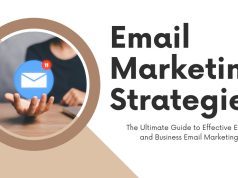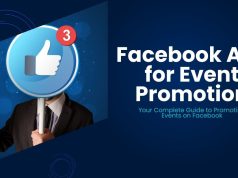Organizing an event is a tough task that demands every ounce of your energy. And promoting one effectively feels just as difficult. Without the right marketing strategy, even a carefully laid out event may well end up not noticed at all or with fewer attendees than anticipated. But don’t fret; I to appear later.
Understanding the Importance of Event Marketing
Before we get into tactics, let’s talk about why a marketing strategy is a must for events. It’s more than just getting people to RSVP; it’s about building excitement, creating awareness, and ensuring the event reflects your brand positively.
Effective event marketing can help you:
- Boost attendance by reaching the right audience.
- Maximize brand awareness by creating pre- and post-event buzz.
- Strengthen engagement by keeping attendees involved long after the event is over.
- Generate leads if your goal is to nurture relationships and grow your database.
With clear goals in mind, you can start building the framework for a winning strategy.
Define Your Goals (And Know Your Success Metrics)
Every good marketing plan starts with understanding your “why.” Define what you want your event to achieve and break it down into measurable objectives.
- Are you focused on attendance? Define a target number of attendees you want to attract.
- Is it brand awareness? Track metrics like social media impressions or media mentions.
- Are you targeting revenue? Outline a goal for ticket sales or sponsorship income.
Once your goals are set, identify the KPIs (Key Performance Indicators) to measure success, whether that’s registrations, post-event surveys, or social media shares.
Identify Your Target Audience
A successful event hinges on reaching the right people, so nail down who your audience is. Ask yourself:
- Who needs or wants this event? What demographic is interested in the topic or activity?
- What platforms do they use? Are they hanging out on Instagram, LinkedIn, or Facebook?
- What pain points or motivations can you address? Craft messages that resonate with their specific needs.
By clearly defining your audience, you can customize your outreach on the right platforms, using the right tone and content.
Build a Strong Event Brand
Your event needs a distinct identity to stand out in a crowded market. From visuals to messaging, make sure your audience knows exactly what your event is about and why it’s worth their time.
- Create a memorable logo that encapsulates your event’s theme and purpose.
- Write a compelling tagline that captures attention and quickly tells people what the event is about.
- Stay consistent with branding across all marketing materials, including your website, social media posts, and email campaigns.
Remember, your branding is often the first thing people see. Make it count.
Choose Your Promotional Channels
Your event marketing strategy should cover multiple channels to maximize reach. Here’s a breakdown of the most effective options and how to use them:
Social Media
With billions of users, platforms like Instagram, Facebook, and LinkedIn are excellent for event promotion.
- Create shareable content such as teaser videos, countdowns, or behind-the-scenes photos.
- Utilize hashtags, both branded and trending, to expand your reach.
- Consider running ads targeted to your specific audience for broader visibility.
Email Marketing
Email is still one of the most effective marketing tools for events.
- Send out personalized invites to previous attendees or your mailing list.
- Use sequenced emails to build anticipation, providing updates on guest speakers, schedules, or special offers.
- Follow up after the event with thank-you messages and post-event surveys.
Influencer Partnerships
Tap into the audience of influencers, thought leaders, or industry experts to generate buzz. They can help by:
- Sharing sponsored posts about your event.
- Hosting live streams or discussions leading up to the event.
- Attending and sharing specific moments from the event itself.
Paid Advertising
Consider using pay-per-click (PPC) advertising on platforms like Google or social media to reach more people. Ads targeted by location, interests, or demographics can ensure you’re attracting the right audience.
Build a Content Calendar
All successful marketing strategies require a timeline to keep efforts organized and consistent. Map out a content calendar that details:
- What’s being posted: Social media posts, blogs, emails, etc.
- When it’s being posted: Release dates for content to build and sustain buzz.
- Where it’s being posted: The appropriate platform or audience segment.
For example:
- 6 weeks out: Save the date announcements.
- 4 weeks out: Early bird ticket offers or regular updates.
- 1 week out: High-energy countdown posts and reminders.
Use automation tools like Hootsuite or Mailchimp to schedule and streamline your efforts.
Make Use of Video Content
Video content is eye-catching and engaging, making it a powerful medium for event marketing.
- Post behind-the-scenes previews of your event preparation.
- Share speaker or performer promo videos to showcase the high-quality content attendees can expect.
- Host live Q&A sessions to drum up engagement and answer burning questions.
Remember, people may forget what they read, but they’ll remember a well-crafted video that excites them.
Create FOMO with an Exclusive Offer
Everyone loves feeling like they’re part of something unique. Use exclusivity to create a sense of urgency:
- Limited early bird tickets.
- VIP packages with perks like meet-and-greet opportunities.
- Exclusive access to downloadable content or recordings post-event.
Highlight the importance of attending your event NOW, not later.
Stay Engaged Post-Event
Marketing doesn’t stop when your event ends. Keeping the momentum alive post-event ensures that attendees continue to feel connected and involved.
- Send a thank-you email summarizing the success of the event and sharing any highlights or takeaways.
- Ask for feedback through surveys to identify wins and areas for improvement.
- Share event recaps like photos, videos, or blog write-ups to keep the conversation going.
- Encourage participants to share their experiences on social media, keeping the buzz alive for longer.
Plan and Execute Your Event with Confidence
It may seem overwhelming to promote an event, but a firm strategy that has been thought through and is implemented ensures you maximum attendance and impact. By clearly defining goals, understanding your attendees, identifying the right promotional approaches, and following through with a function that resonates well with your participants, you can enlarge your brand.
I hope that these tips will take you on your way to achieving event marketing success. Any questions or other help needed are available at any time, just ask us and we will give straight answers to elevate your marketing game.









